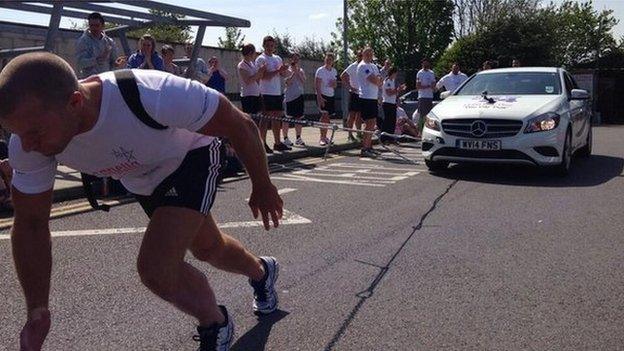Bristol hospital joins study to save lives of twins
- Published
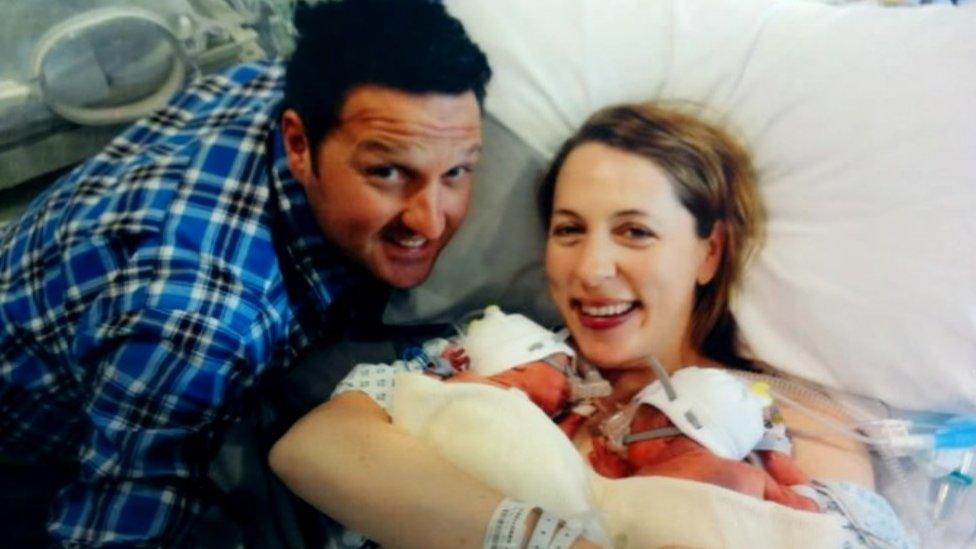
Finbarr and Jo O'Halloran's daughters Amy and Eve survived twin-to-twin transfusion syndrome
A study to improve the survival rate of unborn twins, with a potentially life threatening syndrome, is under way in Bristol.
St Michael's Hospital is joining other UK foetal medicine centres to set up a twin-to-twin transfusion syndrome (TTTS) registry to share information.
Consultant Mark Denbow said they were "constantly learning" about TTTS.
He said the "rare and often devastating condition" occurs in about 10-15% of identical twin pregnancies.
St Michael's Hospital is also one of a few UK centres offering laser ablation surgery, where doctors can operate on the babies while they are in the womb.
'Thankful every day'
Jo and Finbarr O'Halloran, from Backwell, said they were "devastated" when they discovered their twins had the syndrome during a hospital scan.
Mrs O'Halloran was given laser ablation surgery at about 22 weeks into the pregnancy in 2013.
A few weeks later, daughters Eve and Amy were born by emergency caesarean section.
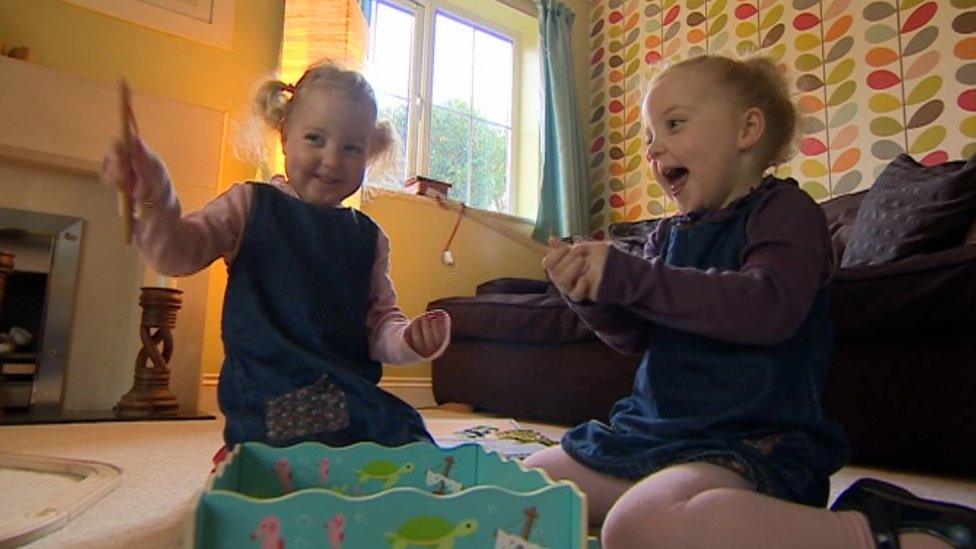
Identical twins Eve and Amy, now three, are healthy after "surviving against the odds"
Jo O'Halloran said: "I am literally thankful every single day that they survived and that they're here."
Keith Reed, from the Twins and Multiple Birth Association (Tamba), said they were "still only skimming the surface" in terms of data collection.
He said: "In order to build the best possible picture of TTTS cases in the UK, and help see which treatments offer the best possible outcomes, we need more hospitals with foetal medicine departments to sign up."
TTTS affects twins who share a placenta, where the babies are not sharing blood equally.
One baby gets too much blood and the other baby does not get enough.
If left untreated 90% of these babies will die and even with treatment there is only up to 70% chance of both babies surviving.
- Published15 October 2016
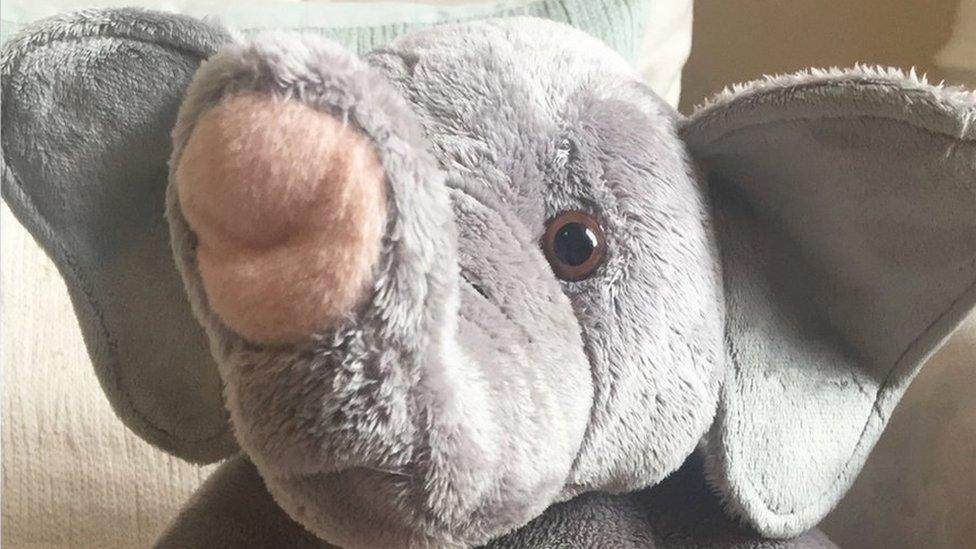
- Published30 June 2015
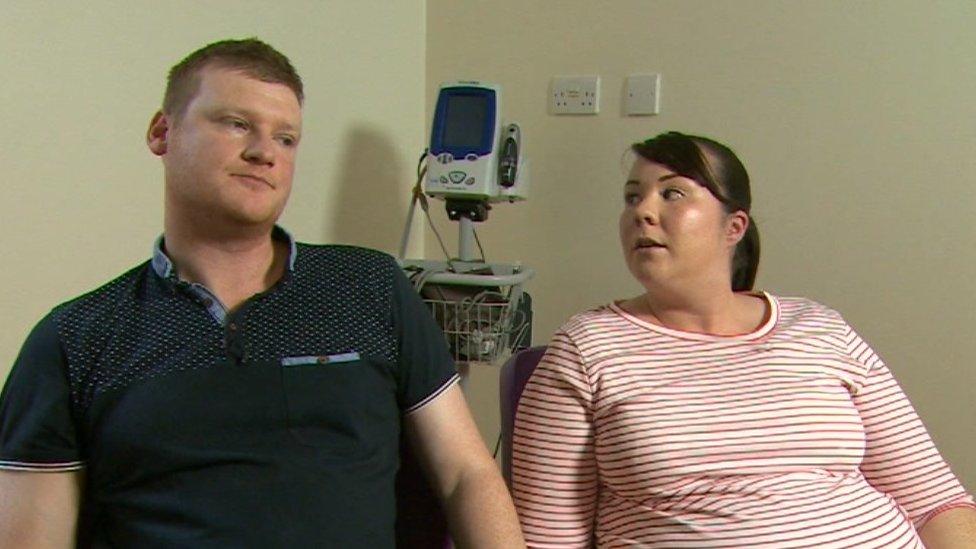
- Published3 May 2014
